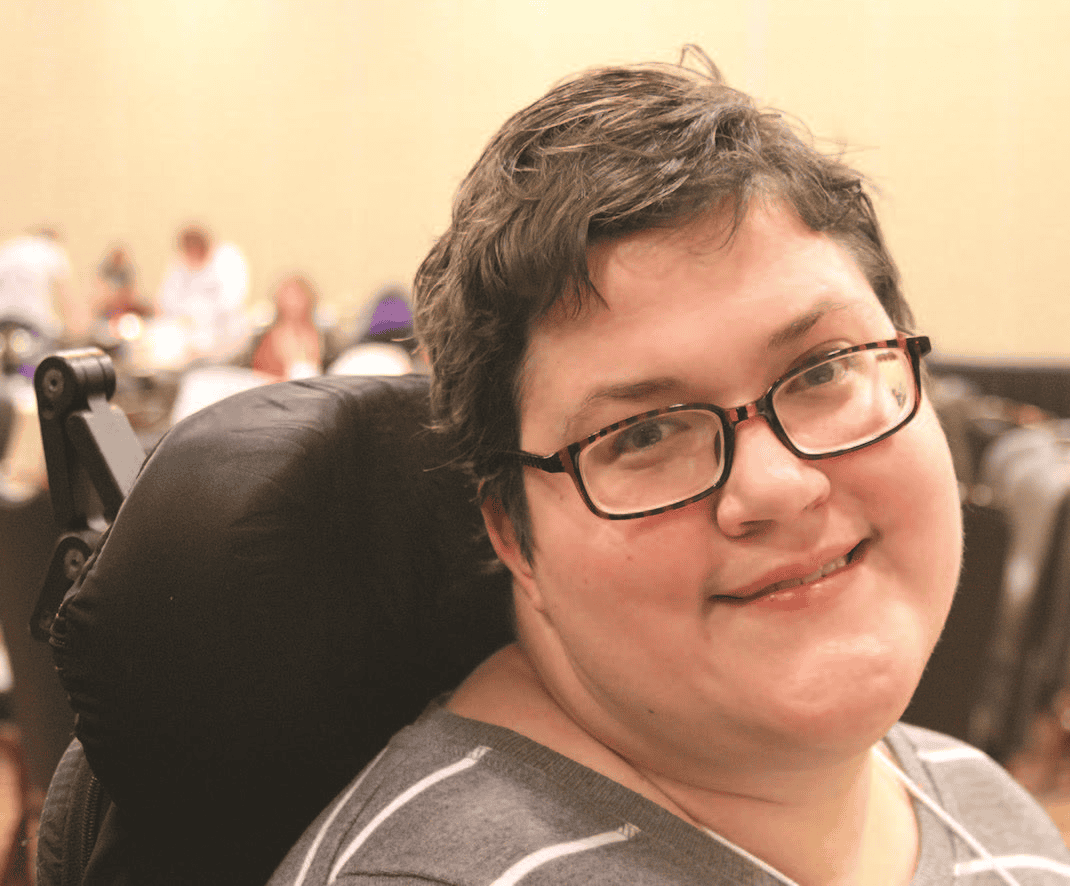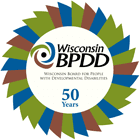Quality Improvement: Individuals
Why Quality Home and Community Based Services Matter to Individuals
Speaking up for yourself and making your own decisions helps make your life better. Speaking up for yourself is called self-advocacy and making your own decisions is called self-determination. The services you receive help you live,
learn, work, and have activities in your communities are what helps improve your quality of life (1). Building self-determination and self-advocacy help reduce the chances of being abused or neglected by others. A group called the Council on Quality and Leadership looked at research on how people can speak
up for themselves. They found that in some states self-advocacy services help people with intellectual and development disabilities participate in the community. These services included building and strengthening how to make
decisions, how to speak up for yourself, and how to assert your rights. These services also help with life skills, including those that can help you advocate for long-term care services (2).
Learning about self-determination is learning how to control your own life. It helps you take steps towards having more freedom and making your own choices. When you know about self-determination, you can do more things, make good
decisions, and be a part of your community. Look for providers that care about these things to improve your life:
- Being More Independent: Help you learn about self-determination to help you do things on your own and have more freedom in your life.
- Making Better Decisions: Help you make choices that are good for you.
- Setting Goals: Helps you pick goals and things you want to achieve. It’s what you want to do and working toward those goals.
- Speaking Up for Yourself: Helps you tell others what you need and what is important to you. Learning to stand up for yourself.
- Being a Part of the Community: Help you find activities you want to do in the community with the people you want. This helps you feel like you belong and have friends.
The Living Well grant pilot agencies helped to make people’s lives better. People in the pilot program got tools to help them speak up for themselves, make choices, and stay healthy and safe.
Data and Numbers from Self-Advocate Interviews: Between 2019 and 2023, the Personal Outcome Measures (POM) interviews were conducted with 167 people with disabilities in Wisconsin, including data from all Living Well pilot sites including 2 pilot sites that could not continue, 7 active pilot sites, and one funder. The top strengths identified were living in integrated environments (75%), realizing personal goals (69%), best possible health (67%), experiencing continuity and security (64%), and safety (60%). However, opportunities for improvement were noted in connecting to natural support networks (28%), having friends (29%), performing different social roles (32%), having intimate relationships (34%), and community participation (37%). Matched pair comparisons from 59 individuals showed statistically significant improvements in being “free from abuse” (p=0.032) and “living in integrated environments” (p=0.020),. Non-matched pair analysis also revealed significant improvements in “freedom from abuse and neglect” (p=0.031) and “choosing where to work” (p=0.044).
How Individuals Can Improve Home and Community-Based Services
The services you receive from your provider can be important to help you have the life you want. Before you decide on a provider, you can have a conversation about what is important to you about learning how to speak up for yourself, make
your own decisions, and be sure that you are healthy, safe and connected in your community. All of your ideas should be part of your person-centered plan or service plan.
Learning about self-advocacy-You should expect your provider to help you learn more about self-advocacy. When you look for services and supports, you can ask your provider what type of training or tools they will use to help you learn
self-advocacy.
Becoming more Self-Determined-When you work with your provider, you
should be involved in the deciding what is in your plan. You have a right to tell
them what you want in your plan. This includes telling exactly how you want
your life to be. You should be able to decide who supports you, what activities
you want to participate in, who you want to do things with, and that you are
allowed to make your own decisions.
Ensure your services support your health, safety, well-being and independence-You should expect your provider to complete assessment using evaluation tools. These tools will be a set of questions that the provider will ask you about your life. These questions should be a conversation with your provider to help determine any help you need to be healthy, safe, and connected. Your provider should have the same conversation with you every 6 months to see how
your life is changing and what new activities you want in your life.
Person-Centered Planning-Your provider should work with you to build a person-centered plan. There are some important skills your provider should have to build a good plan. They should focus in these areas (3):
• What people are good at, where they come from, and all parts of their life
• Helping people make friends and connecting with others in a good way
• Helping people choose and control your own life
• Working as a team to help and organize things together
• Making a plan that’s all about a person, do it, and check how it’s going
Tools for Individuals
Safe and Free Series– The WI BPDD Living Well Safe and Free series is designed to help youth and adults learn about important topics and skills for self-advocacy, safety and independent living. The topics include Knowing Yourself, Knowing Your Community, Communication, Problem Solving, Rights, Voting, Safety at Home, Safety in the Community, Abuse Awareness and Relationships. Ask your provider if they are using the Safe and Free series and sign up for a class. Also, contact People First Wisconsin to see if they are teaching a class.
Let’s Talk About Rights Guides and Videos-Rights are things that people can have or do. People with disabilities should be allowed to have and do all the same things as people without disabilities. When people understand their rights, they have better lives. These guides and videos can help agency staff, guardians and people who receive support learn about rights. Ask your provider if they are using the WI BPDD Living Well Let’s Talk About Rights Guides and Videos.
Healthy, Safe and Connected Toolkit– People with disabilities need to be healthy, safe and connected. This toolkit was developed by the WI BPDD Living Well Project team and self-advocates with People First Wisconsin. This toolkit can be used by agencies to give people ways they can be healthy, safe, and connected in their communities. It is written in plain language and has planning guides and worksheets. Ask you provider if they are using the Healthy, Safe and Connected Toolkit.
The Self-Determination Channel– This channel is dedicated to sharing the voices of people with disabilities about making choices and speaking up for themselves. They celebrate successes and show that, through perseverance, anything is possible.
Self-Advocacy Resource and Technical Assistance Center (SARTAC)– The oldest national self-advocate organization with the mission to strengthen the self-advocacy movement by supporting self-advocacy organizations to grow in diversity and leadership. They offer trainings and resources to help educate people with disabilities.
Life Skills Assessment– This is a simple, one-page set of questions that can help you understand about how you can function in your world. The WI BPDD Living Well Life Skills Assessment tool uses a 5-point rating scale to help know your level of independence and what support your needs in all areas of your life.
Quality of Life Questionnaire – This questionnaire helps you rate your experiences and satisfaction with their physical health, mental health, social relationships and living environments.
The Personal Outcome Measures® (POM)– The POM is a person-centered interview with you and someone who supports you. The conversation helps you describe what is working in your life and what you want to improve or change. The tool will help you and your provider develop your person-centered plan. Add something about the app. You can contact CQL to find a certified POM Interviewer in your area.
Accessing Home and Community-Based Services: A Guide for Self-Advocates– This handbook helps people with disabilities find and use resources that empower them to live and be in charge of their own lives.
Building Full Lives-This program from WI BPDD has been used by Wisconsin service providers. It can help you explore interests, meet new people and get connected to new opportunities in the community, including jobs.
Reflection Activity
Download the Reflection Activity for this section to make your Quality Improvement Action Plan!

Navigate the Blueprint
“The people I mentored were all able to see the possibilities in their lives.”
– Self-Advocate Leader
Real Lives. Real Connections.
“We are all in it together. We are dealing with these same issues and circumstances. The reason why we are doing this is that we want people to learn from other people with disabilities.”
– Self-Advocate Leader

